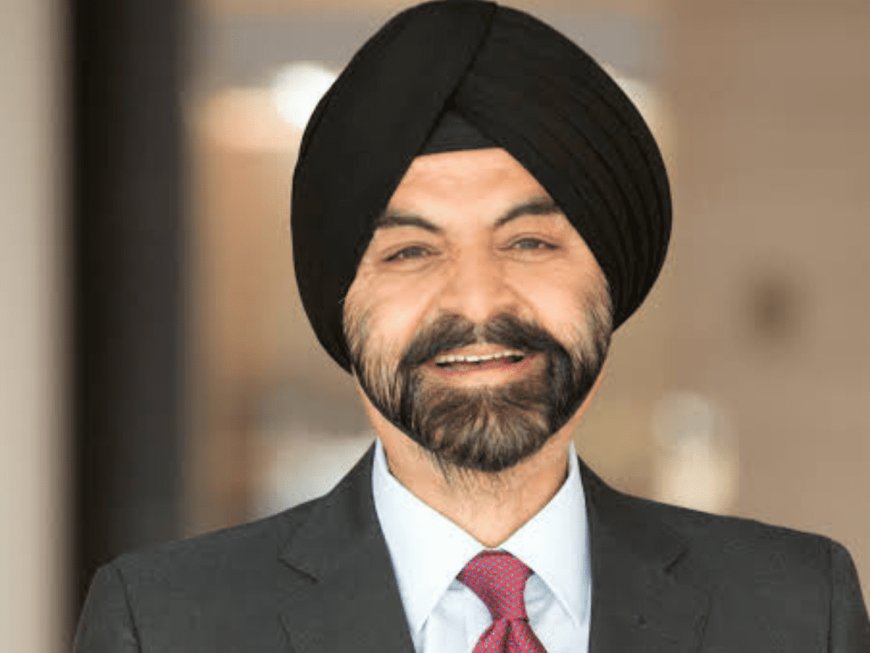New World Bank chief begins with focus on environment
Ajay Banga, who took over as the new president of the World Bank on June 2, steps into his role with a clear vision for addressing the pressing challenges of climate change and poverty eradication. Here are some insights from Banga’s inaugural address to World Bank staff, his meetings with key stakeholders, and the expectations placed upon him by climate activists and international communities. Banga is former chief executive of Mastercard.

In a pivotal moment for the World Bank, Ajay Banga officially begins his tenure as the 14th president of the esteemed institution. His ascent to leadership comes at a critical juncture in the bank’s 77-year history, with the global pandemic reversing years of progress in poverty reduction and growing concerns about climate change’s profound impact on the planet.
Banga’s inaugural address to World Bank staff emphasized the urgent need for a comprehensive approach that addresses both climate change and poverty. He urged the staff to join him in developing a “new playbook” that maximizes resources, fosters creative thinking, takes informed risks, and forges new partnerships with civil society and multilateral institutions.
While Banga’s selection may not bring extensive climate credentials, his commitment to addressing the intertwined challenges of climate change and poverty is clear. He recognizes the World Bank’s duty to pursue both climate adaptation and mitigation while balancing the needs of lower-income and middle-income countries. Banga’s memo to the World Bank's executive board further highlighted the bank's responsibility to think globally while considering national and regional needs and to embrace prudent risk-taking in pursuit of its environmental goals.
As Banga assumes the presidency, he faces pressure to demonstrate progress on the bank's environmental agenda. Climate activists plan to rally outside the World Bank, demanding a shift away from financing coal, oil, and gas projects in favor of clean energy initiatives. Banga acknowledges these concerns and understands the imperative to prioritize clean energy projects while working towards a sustainable future.
In his meeting with United States Treasury Secretary Janet L. Yellen, Banga received encouragement to optimize the World Bank's balance sheet and mobilize more private capital. Yellen, who has been urging multilateral lenders to scale up lending resources for addressing climate change and other global crises, emphasized the importance of getting the most out of the bank’s financial capacity while maintaining a focus on poverty reduction.
Banga’s diplomatic role extends beyond the United States. As president of the World Bank, he will seek to satisfy the climate ambitions of the United States and Europe while addressing the concerns of developing countries. Additionally, Banga faces the challenge of urging China, a major World Bank shareholder and creditor, to support debt restructuring for poorer nations that have borrowed significant sums from Beijing.
As Ajay Banga takes the reins of the World Bank, his strong focus on climate change and sustainable development sets the stage for a new era in the institution’s agenda. With the world at a critical moment, Banga’s vision for a “new playbook” that maximizes resources, fosters partnerships, and drives innovative solutions becomes paramount. The success of his presidency will not only shape the World Bank’s trajectory but also play a pivotal role in leading global efforts towards a more sustainable and poverty-free future.
Past chiefs’ stance
During his tenure as World Bank president, Jim Yong Kim (2012-2019) emphasized the need for global action on climate change. He recognized climate change as a significant threat to development and advocated for measures to address it, including promoting sustainable development practices and supporting renewable energy projects.
Paul Wolfowitz (2005-2007), during his tenure as president, initiated the Clean Energy Investment Framework to support renewable energy and energy efficiency projects in developing countries. However, his tenure was marked by controversy and criticisms related to governance issues, and the focus on environmental concerns may have been overshadowed during that time.
Robert Zoellick (2007-2012) advocated for sustainable development and highlighted the importance of integrating environmental considerations into development projects. He emphasized the need for climate-smart policies and investments to ensure long-term sustainability and resilience.
What's Your Reaction?













































